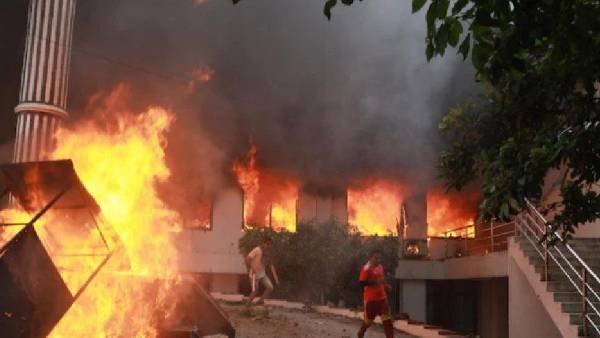
In a deeply tragic turn of events, Rajyalaxmi Chitrakar, the wife of former Nepal Prime Minister Jhalanath Khanal, succumbed to burn injuries after protesters allegedly set fire to their residence in Kathmandu’s Dallu area. The incident occurred on Tuesday, September 9, during a wave of violent demonstrations sweeping across Nepal. According to reports, Chitrakar was trapped inside the house when it was torched by a mob, believed to be part of the ongoing “Gen Z” protests against government corruption and suppression of free speech2.
Eyewitnesses and family sources confirmed that Chitrakar was rushed to Kirtipur Burn Hospital in critical condition. Despite medical efforts, she died during treatment, leaving the nation in shock and mourning. The attack on the Khanal residence was part of a broader escalation in violence, where demonstrators targeted homes of government officials and public infrastructure. The protests, initially sparked by a controversial social media ban, have evolved into a widespread movement against systemic corruption and political mismanagement3.
The unrest has led to significant political fallout, with Prime Minister KP Sharma Oli and President Ram Chandra Poudel reportedly resigning amid mounting pressure and public outrage. The death toll from the protests has risen to at least 19, as clashes between demonstrators and security forces intensify. The capital city has witnessed widespread vandalism, arson, and disruption, including the shutdown of Kathmandu’s airport and emergency evacuations of ministers via army helicopters4.
Rajyalaxmi Chitrakar’s death has cast a somber shadow over Nepal’s political landscape, highlighting the human cost of civil unrest. Her passing has prompted calls for accountability and urgent dialogue to restore peace and stability. As investigations continue into the circumstances surrounding the fire, the incident serves as a grim reminder of the volatility gripping the nation and the urgent need for reform and reconciliation.
